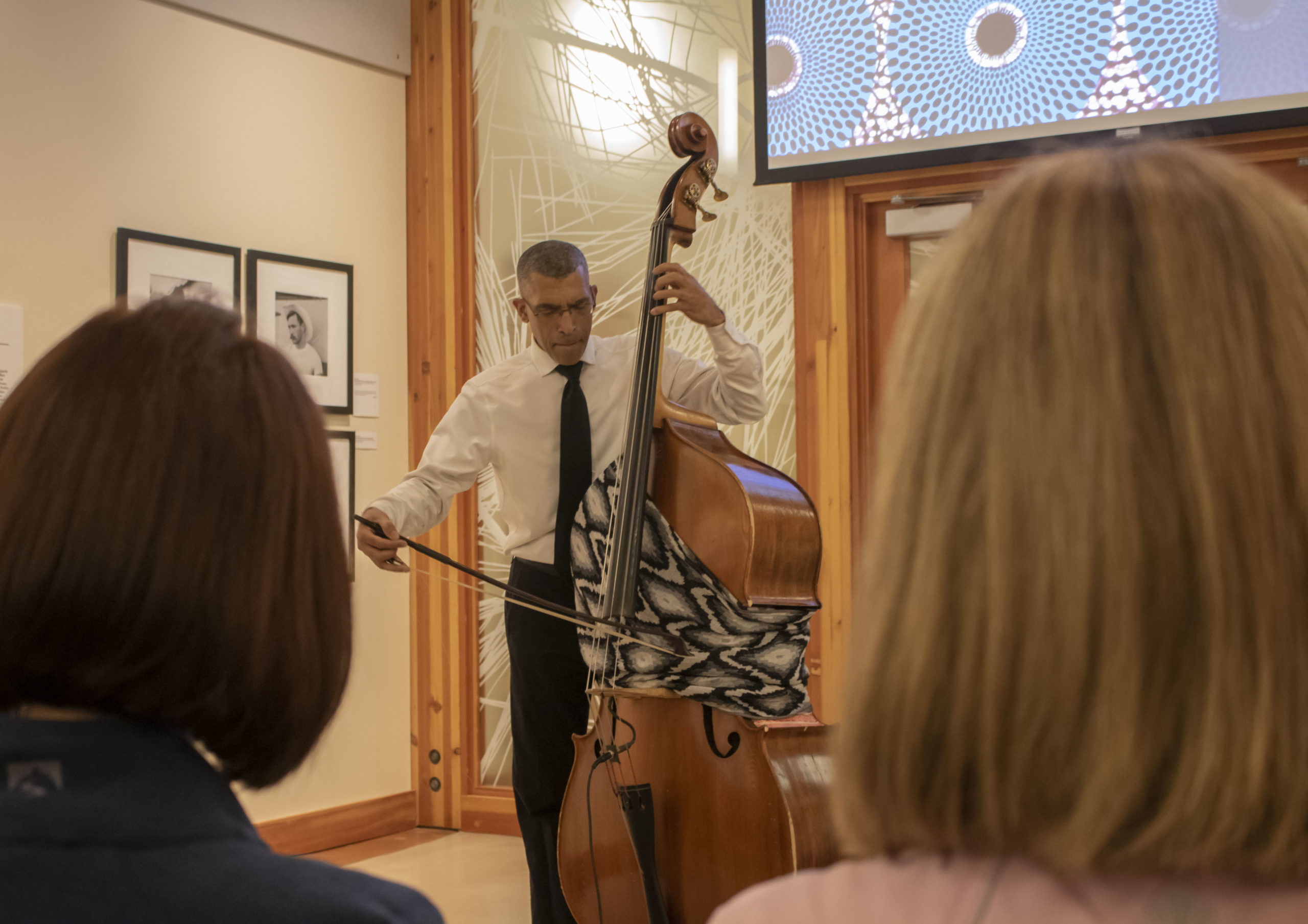Eric Richardson, the Executive Director of Lane County’s chapter of the National Association for the Advancement of Colored People, performed a one-man show at the University of Oregon’s Museum of Natural and Cultural History on Jan. 23. There, about 50 people crowded into the museum’s lecture hall to hear his speech, double-bass playing, and recitation of poems and ancient scriptures.
Richardson served formerly as a board member of the Willamette Jazz Society and performs locally with his band, The Eric Richardson Trio. For most of the night, he talked about civil rights, racism, the jazz movement and how they are all entwined.

“It’s 2020, so it’s [been] about 100 years since the Harlem Renaissance. From what I understand, the Black world is worse off in 2020 than it was in 1950.” He added, “There are less Black two-parent households, less home and farm ownership, the education level has gone down, the prison population has skyrocketed, HIV is devastating the continent of Africa and Black America. All with deafening silence.”
After a moving performance on the bass, Richardson recited “On Liberty and Slavery” by George Moses Horton to set the tone for the night’s introspection. As he transitioned into his speech he focused in on a line of the poem: “It talked about Africa’s groves and that’s where I’d like to start tonight.” Richardson then explained the systematic erasure of African history and how Black people are only taught in history as slaves or Civil Rights activists.
“Black people did not step off the boat in 1619 out of a void. They stepped off of that boat after millennia of civilization, of tradition going back to the beginnings of humanity itself.” Despite being forgotten by history, he stated that Black people have within them a spark that still connects them to the art and culture of their ancestors.

Richardson himself didn’t have to look far for inspirational predecessors, “I had the benefit of having a strong Afro-centric mother and father who were raised in St. Louis and who came up in the 60s in the Black Arts Movement.” This movement was African-American led and resisted Western influence in an effort to create art that exemplified the Black experience, Black pride and ultimately paid homage to their African roots.
“In Eugene, in the midst of a white town we were proud of our African heritage and we felt it was something we could share and I think that has allowed me to thrive,” Richardson recalled. He started playing the bass while in the fifth grade at River Road Elementary and would regularly ride LTD buses home with his instrument.
Richardson’s parents not only passed on pride for his ancestry but also a love for Jazz music. He smiled to himself as he recalled what his dad used to say about the famed saxophonist John Coltrane. “Son, no one said the word of God was gonna come in English. Maybe it was gonna come in musical notes.”
As the night neared a close, Richardson had already performed two songs and talked for approximately an hour on topics ranging from ancient history to his own personal history. He asked the audience if they wanted to open for questions or hear him play more. Scattered shouts unanimously agreed, “Music! Music! Music!”

He closed with a final piece about rhythm coming from Africa. Attendees were invited to peruse the museum’s exhibitions for the last hour before its closing.




* Museum of Natural and Cultural History not Jordan Schnitzer Museum of Art.
Wonderful article otherwise!
Thanks for the correction!